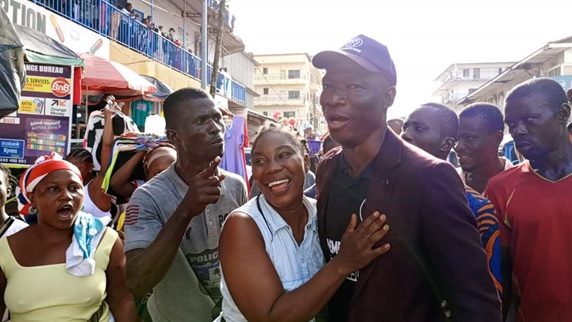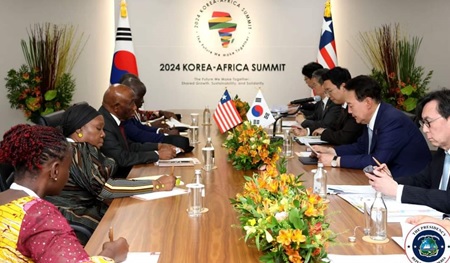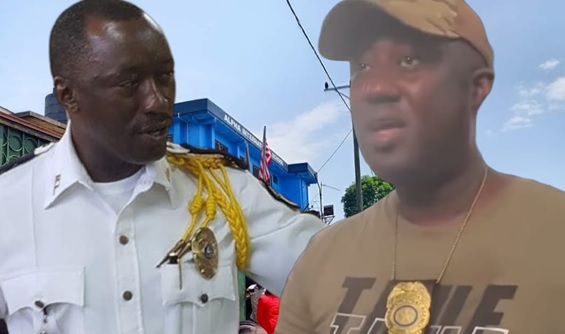MONROVIA – Rep. Yekeh Kolubah of Montserrado County District #10 is not backing down with his newly established “Movement Against Boakai Presidency.” He has planned a county tour aimed at creating awareness against the nearly five-month-old Unity Party government under President Joseph Nyuma Boakai. Today, Rep. Kolubah walked through Monrovia, building his support base against the Boakai Presidency. After the walk, the tough-talking lawmaker posted on his Facebook page, saying, “Upon my return to the country, I walked through Monrovia and West Point to test the reception of the people’s movement against Boakai’s presidency.”
Kolubah’s journey through these areas was aimed at gauging public support and gathering grassroots feedback in the political landscape, signaling his active engagement and strategic positioning in the ongoing political discourse. His walk was met with a mix of curiosity and support, with many residents expressing concerns over the current administration’s performance. Kolubah’s movement has quickly gained traction, tapping into the discontent felt by some segments of the population regarding issues such as corruption, economic stagnation, and governance.
However, the political atmosphere took a contentious turn when Representative Yekeh Kolubah was denied entry to the House session by the presiding officer and the Sergeant-at-Arms. This denial sparked a heated reaction from Kolubah, who promised to challenge the House rules. He alleged widespread corruption involving President Boakai, Commerce Minister Amin Modad, and several lawmakers, accusing them of acting against the public interest. These allegations have stirred significant controversy and have highlighted the growing rift within the political landscape.
Kolubah’s accusations have raised questions about the integrity of the current administration and its commitment to transparency and accountability. His claims have found resonance among those who feel marginalized by the government’s policies and actions. The lawmaker’s outspoken nature and willingness to confront his former allies publicly have added a dramatic twist to Liberia’s political scene, drawing both criticism and admiration from different quarters.
Liberians are now left wondering where the bitterness between the two former allies, who were once on the same pillar during the 2023 presidential election that brought President Boakai to power, stems from. The tension between Kolubah and Boakai highlights the fragility of political alliances and the shifting dynamics within Liberia’s political framework. As Kolubah continues his campaign, it remains to be seen how this movement will influence the political landscape and what impact it will have on the Boakai administration’s ability to govern effectively.
In the meantime, Kolubah’s planned county tour promises to be a significant test of his movement’s reach and influence. It will also be a critical indicator of the public’s appetite for political change and their willingness to support an opposition movement that challenges the status quo. The coming weeks are expected to be pivotal as Kolubah ramps up his efforts to build momentum against President Boakai’s administration, setting the stage for an intense political battle ahead.







